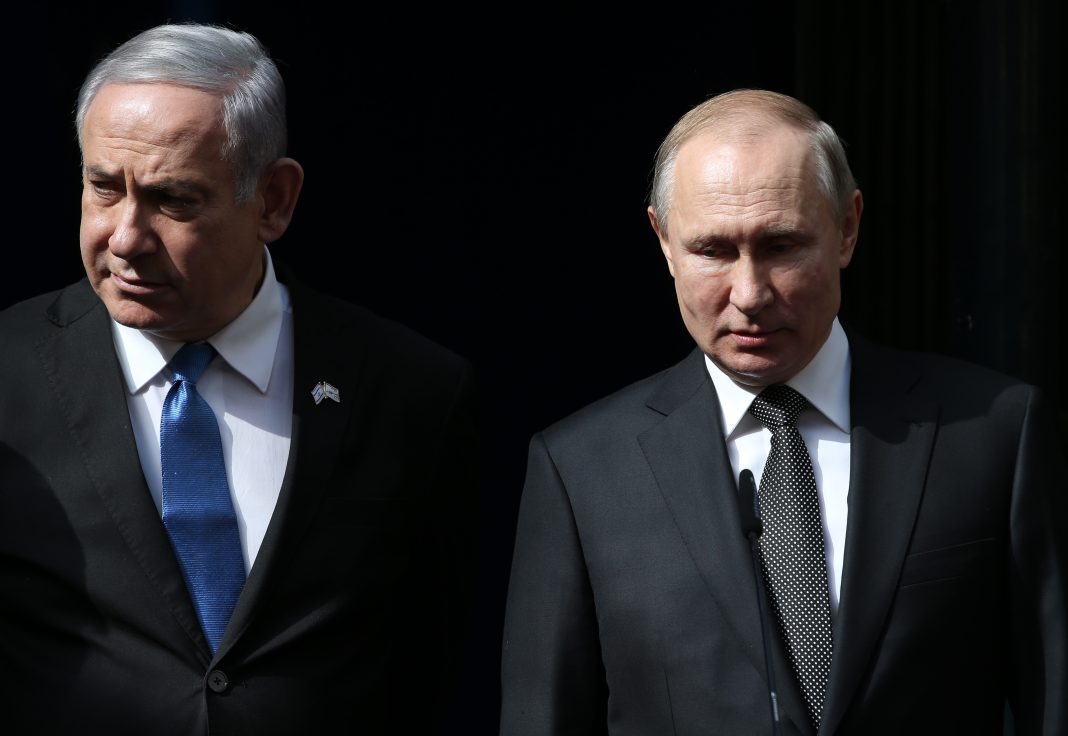In the intricate web of global politics, the outcomes of two significant conflicts—the war in Gaza and the ongoing struggle in Ukraine—are inextricably linked to the forthcoming American presidential election. Although U.S. troops are not directly engaged in combat in either theater, the implications of the election results could reverberate across continents, influencing the strategies and ambitions of leaders like Israeli Prime Minister Benjamin Netanyahu and Russian President Vladimir Putin.
As the election approaches, the stakes are particularly high for Netanyahu and Putin, both of whom appear to favor a Donald Trump victory. For Netanyahu, a Trump presidency would signal a green light for a more aggressive military campaign in Gaza, southern Lebanon, and the West Bank. Under President Biden, Netanyahu has faced pressure to moderate his actions amidst a growing chorus of dissent from within the Democratic Party, particularly from progressives who are increasingly vocal about their opposition to the war. This delicate balancing act has left the Biden administration in a precarious position, attempting to support Israel while advocating for a ceasefire and the long-term vision of a Palestinian state—a stance that has alienated both progressive and conservative factions within the party.
Polling data reveals that a significant portion of the Israeli electorate—58%—would support Trump if given the chance, reflecting a desire for a more unrestrained approach to military operations. Netanyahu’s strategy appears to be one of leveraging the political landscape in the U.S. to his advantage, knowing that a Trump administration would likely abandon any pretense of urging restraint, thereby allowing Israel to escalate its military efforts without fear of American repercussions.
On the other hand, Putin’s ambitions in Ukraine are similarly tied to the electoral outcome in the U.S. Should Trump reclaim the presidency, it is anticipated that U.S. support for Ukraine would diminish, potentially emboldening Putin to intensify his military campaign. The implications of this shift could be dire, not only for Ukraine but also for the stability of Eastern Europe, particularly the Baltic states, which could find themselves increasingly vulnerable without the backing of NATO.
The recent escalation in the Middle East, marked by Iran’s missile strikes against Israel, underscores the precarious nature of the situation. Following the assassination of Hezbollah leader Hassan Nasrallah, Iran retaliated with a barrage of ballistic missiles, raising the specter of a wider regional conflict. The Biden administration has reiterated its support for Israel, yet calls for de-escalation from figures like United Nations Secretary-General António Guterres highlight the urgent need for a diplomatic resolution. Netanyahu’s recent address to the U.N., where he proclaimed an unwavering commitment to achieving “total victory,” was not merely a message for the international community but a calculated appeal to American voters, signaling his intent to resist any peace initiatives that might arise from a Democratic victory.
In the backdrop of these international tensions, the U.S. political landscape is further complicated by the contrasting approaches of the candidates. President Biden has pledged an additional $8 billion in aid to Ukraine, reinforcing his administration’s commitment to supporting the beleaguered nation. In stark contrast, Trump has publicly expressed admiration for Putin, framing their relationship as a point of pride. This dynamic is emblematic of a broader trend within the Republican Party, where figures like Ohio Senator JD Vance have openly criticized Ukraine while aligning themselves with pro-Russian sentiments.
The role of disinformation in shaping public perception cannot be overlooked. Russian efforts to influence the American electoral process, reminiscent of the tactics employed in 2016, are reportedly gaining momentum. Recent allegations suggest that right-wing influencers are being covertly funded by Russian sources, amplifying conspiracy theories and divisive narratives. This manipulation of information is particularly effective in an era where partisan divides are stark, and the echo chamber of social media can rapidly disseminate misleading narratives.
As the election draws near, the implications of a Trump victory extend far beyond American borders. Both Netanyahu and Putin recognize that a Trump presidency could facilitate their military ambitions without the threat of American intervention. The potential consequences of this scenario are profound, not only for the nations directly involved in these conflicts but also for global stability as a whole.
In conclusion, the intersection of American politics with international conflicts highlights the profound impact that electoral outcomes can have on global affairs. As voters prepare to cast their ballots, the stakes are higher than ever, with the potential for a Trump victory to embolden aggressive military strategies in both the Middle East and Eastern Europe. The world watches closely, aware that the decisions made in the U.S. could reshape the geopolitical landscape for years to come.


